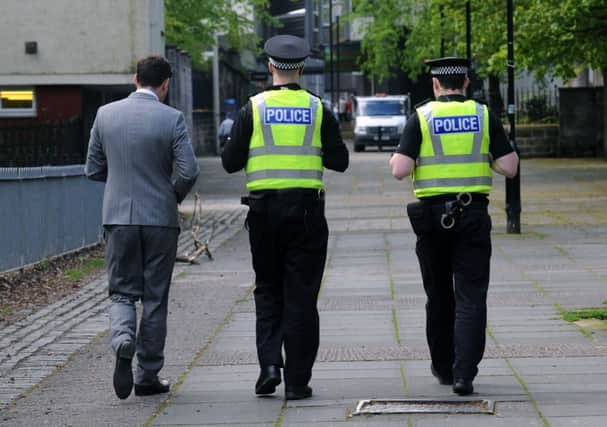Chris Marshall: Stop and search thrown into question


Depressingly, the report also highlighted that teenagers aged 15-19 were most likely to be stopped for non-statutory searches, with 223 children aged nine or under also recorded as having been stopped and searched during a nine-month period.
Last week, Police Scotland finally bowed to pressure and said it would stop the policy of non-statutory or “consensual” searches on under-12s.
Advertisement
Hide AdAdvertisement
Hide AdBut, given the SPA’s failure to find a “causal link” between the tactic and falling crime levels, critics have asked whether there is any need for non-statutory searches whatsoever.
Around two-thirds of searches are non-statutory, meaning officers did not need reasonable suspicion and the individual does not need to be informed of their right to refuse. The use of non-statutory stop and search is not permitted anywhere else in the UK.
The idea that children, or adults for that matter, are providing “consent” when they are unaware of their right to refuse is a strange one indeed.
There was a further blow for stop and search last week when it was claimed Police Scotland was overstating the number of weapon finds by 40 per cent.
According to a Sunday newspaper, an officer who searches for knives but who recovers drugs instead, will still record the search as positive. As a result, it is claimed the recording system gave the impression there were 1,506 more weapons finds by Police Scotland officers last year than was accurate.
According to the SPA’s review, only one in every 100 searches recovers a weapon, while stolen property is found in two out of 100. The majority of the searches and detections are for alcohol, despite there being no statutory powers for these.
While there is no doubt that intelligence-led statutory searches have a vital role in modern policing, the question has to be asked as to why our police officers are being given targets to confiscate alcohol from teenagers.
Yes, the policy may have some role to play in reducing anti-social behaviour, but surely the price – alienating a generation of young people – is too great to pay.
Advertisement
Hide AdAdvertisement
Hide AdTo its credit, Police Scotland has responded to concerns over stop and search. It has set up a national unit to ensure a consistency of approach, and it has banned non-statutory searches of children. But there will be those who suggest this does not go far enough, and that the police would be better to ban non-statutory searches altogether.